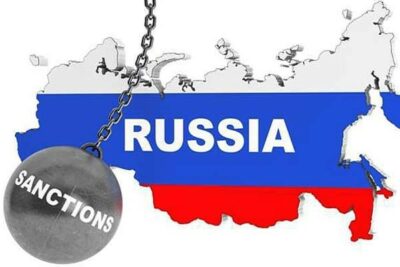By: Christos Linardakis, Senior Counsel
Picture this: Several years ago, after performing the typical due diligence on locating and choosing a distributor in Russia, you proceed to move forward. Your PR department has taken photos of your company’s President shaking hands with the distributor’s President, after closing the deal. This new relationship is then subsequently posted on your corporate website, and sent in a press release on your company’s letterhead showing that ABC Company in Moscow is the designated distributor for your products.
Let’s say things are moving along smoothly for several years, then one day, you wake up and turn to page 2 of the Wall Street Journal and unbelievably, you see an article with bold letters, entitled, “U.S. Says 11 Exported Technology to Aid Russians”. The article then explains that one of the U.S. companies involved was selling to the Russian military and intelligence agencies, and was a large-scale Russian military-procurement network operating in the U.S. Well, this is definitely not a hypothetical situation, as it occurred in October of 2012, and was published in the WSJ on October 4, 2012. The case involved Arc Electronics, Inc., based in Houston, Texas and Apex Systems in Moscow.
So…it begs the question, what do you do if you’re caught up in this sort of situation? Suddenly, your only distributor in Russia is added to the “Denied Parties List” and is effectively shut down from receiving any of your goods. To compound the situation, your products are in their warehouse in Moscow on consignment. You have ocean and airfreight containers inbound to Russia, the day the DPL goes into effect, accounts receivables still open, and the Russian “spy ring” clearly shown on your website for potential customers (and even worse, reporters!) to see.
The above is real, and I can attest to it, having lived through it. The lessons learned effect not only your company’s legal department, procurement, and supply-chain, but even worse, your image among shareholders and your customers. Finding a distributor in Russia, in a short period of time, is extremely difficult. Not only do you need to assess their financial stability, but also, several other facets of the business, including warehouse management systems, EDI, delivery, quality, as the list is nearly endless. Such an incident could cripple your supply-chain, lead to loss of orders, breach of contracts for failure to deliver your goods on time, and even line-down charge backs for those customers who deal in JIT inventory.
Securing your supply-chain to do business in places like Russia is absolutely critical. Your trade compliance department must be involved up front (and we’re not just talking about C-TPAT or AEO certifications), along with legal, finance, and distribution. In-depth reviews must be conducted when doing business today in Russia, given the latest sanctions and the possibility of illegal end-use or end-users. This means more than a simple financial background check inclusive of on-site visits to the distributor, assessing their relations with the local Customs authorities, checking the backgrounds of each and every officer of the company, not only against Denied Party Lists and other Sanctioned Lists, but country, economic and Officer Intelligence reports. Cross referencing intelligence information, such as whether an officer of the company has been indicted in the past, or sits on the board of various “other” businesses; whether they have ever been sued for fraud or false representation, what corporate responsibility standards do they have and what/who are their international business partners are just a few of the areas when performing in-depth due diligence in countries such as Russia.
The above represent just a few areas that should be considered from a trade compliance standpoint, many of which involve a collaborative effort with the various departments discussed above. In addition, legal oversight with distribution contracts and required export control language is a must. Working with the overseas U.S. Consulate is an added safety measure to obtain what information is available on a specific distributor. Even local Export Enforcement Offices in the U.S. are willing (at times) to share information and look into potential overseas partners. You should use every resource in the book to ensure that your overseas partners are legit. You should also keep abreast of the global regulatory changes affecting your business in Russia and elsewhere. If not, you may just end up in the middle of a case, like Arc Electronics, and before you know it, your supply-chain is facing a disastrous slow down if not a halt.

























